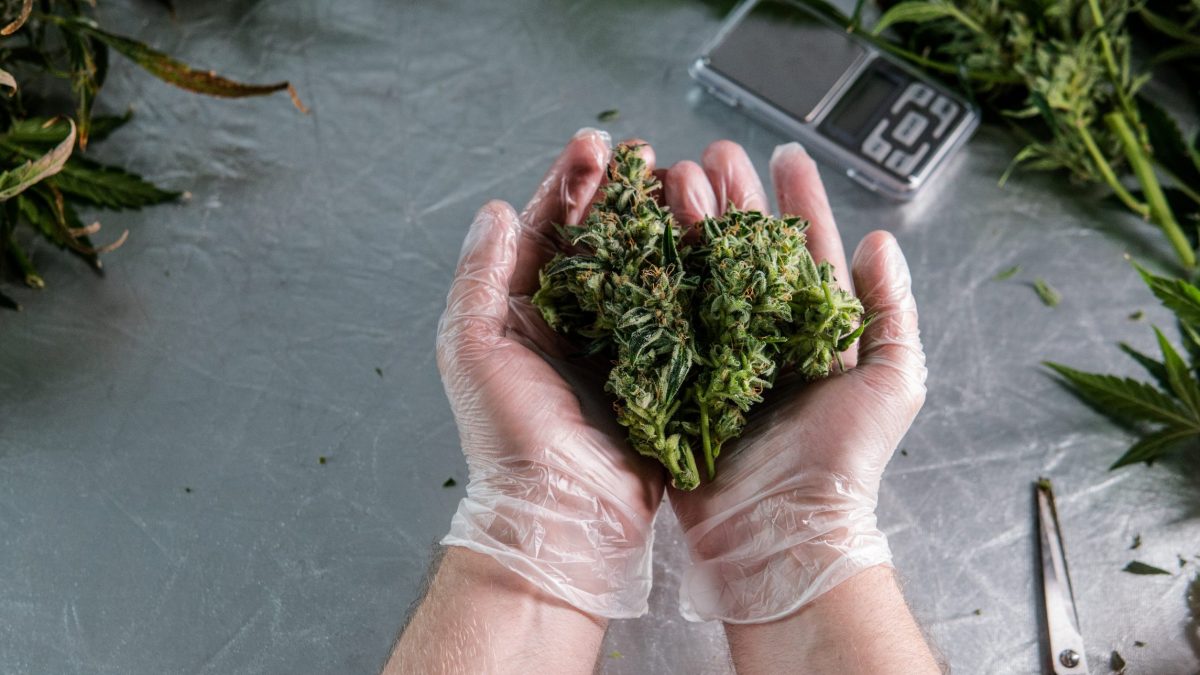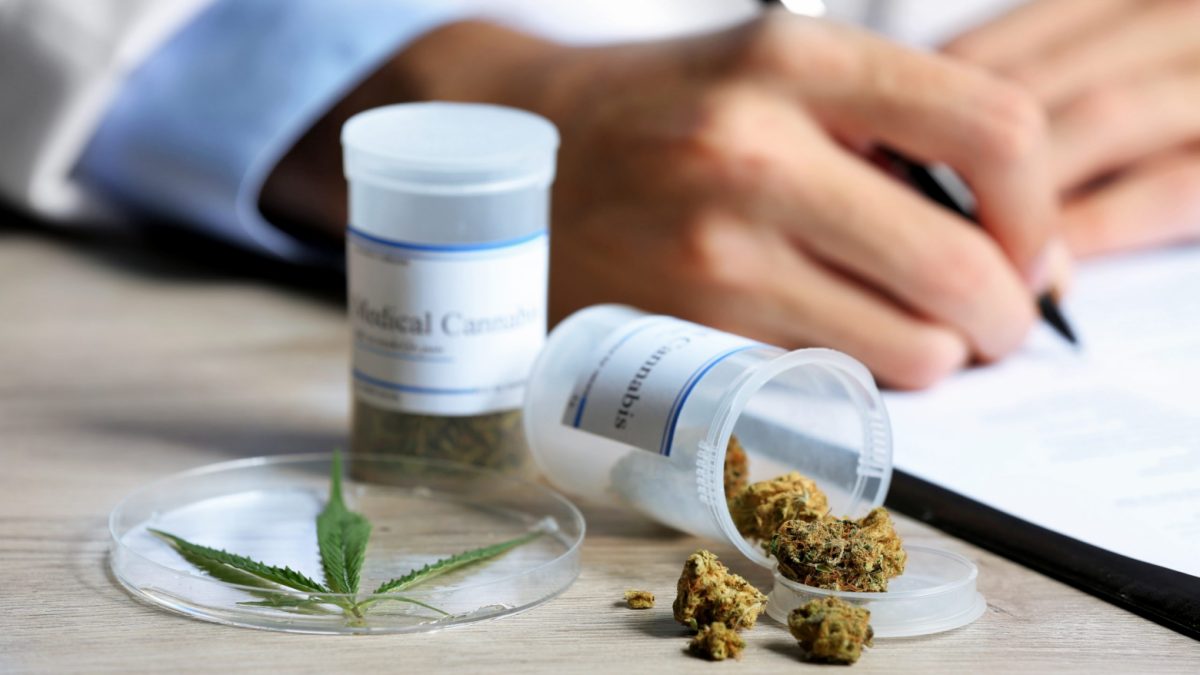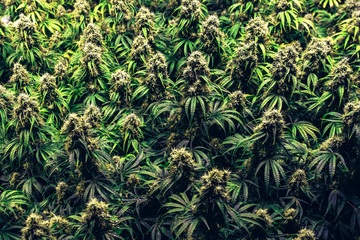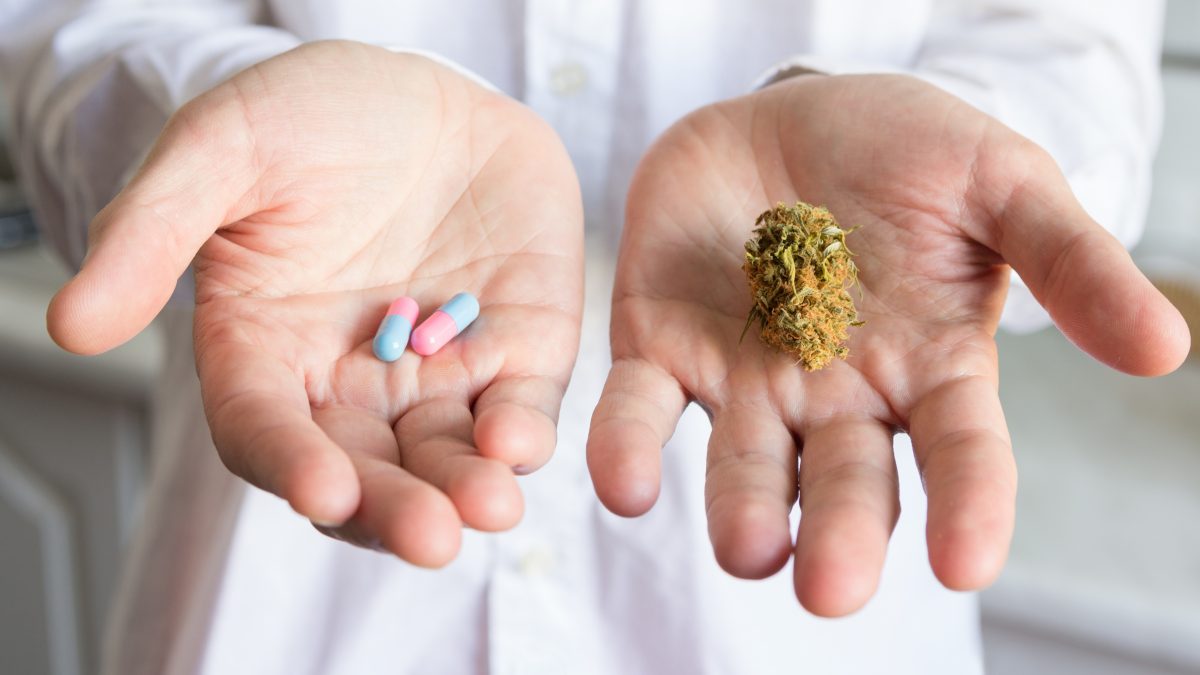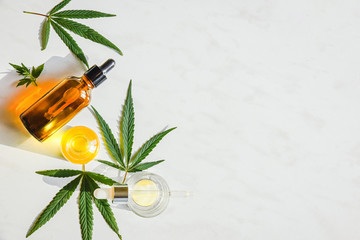Medical Marijuana For Crohn’s Disease
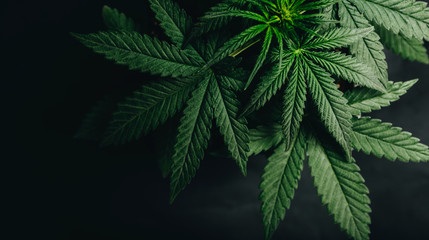 Medical marijuana has been used for centuries to help relieve numerous ailments including nausea, chronic pain, and muscle spasms associated with Crohn’s disease. Studies have shown that cannabis may reduce inflammation in the intestines which is one of the main causes of this condition. In addition to providing relief from symptoms like cramping and vomiting, medical marijuana can also improve appetite and sleep. This can be especially beneficial for those coping with malnutrition caused by Crohn’s disease.
Other potential benefits of medical marijuana include reducing anxiety and depression which are often associated with this condition. In addition, it has been shown to help reduce the risk of developing colorectal cancer which is a common complication of Crohn’s disease. Finally, cannabis may even increase the effectiveness of traditional treatments like steroids or antibiotics used to treat this condition.
Overall, medical marijuana is an effective treatment option for relieving symptoms associated with Crohn’s disease and improving quality of life. While more research is needed to determine its full effects on patients living with this condition, current studies suggest that cannabis may be a beneficial treatment for Crohn’s disease.
Our team of doctors, compassionate care providers, and support staff are trained in the use and application of medical cannabis. They work closely with each patient to ensure they receive the best quality care possible. We understand that everyone’s individual needs differ from one another, so we strive to provide personalized treatment plans tailored to your specific condition or symptoms. Our staff is available for follow-up appointments after you have received your medical marijuana card and can assist you with any concerns or questions you may have about dosage levels, types of products available, etc. Contact us today at 800-250-6737 for more information about our services!
Medical marijuana has been used for centuries to help relieve numerous ailments including nausea, chronic pain, and muscle spasms associated with Crohn’s disease. Studies have shown that cannabis may reduce inflammation in the intestines which is one of the main causes of this condition. In addition to providing relief from symptoms like cramping and vomiting, medical marijuana can also improve appetite and sleep. This can be especially beneficial for those coping with malnutrition caused by Crohn’s disease.
Other potential benefits of medical marijuana include reducing anxiety and depression which are often associated with this condition. In addition, it has been shown to help reduce the risk of developing colorectal cancer which is a common complication of Crohn’s disease. Finally, cannabis may even increase the effectiveness of traditional treatments like steroids or antibiotics used to treat this condition.
Overall, medical marijuana is an effective treatment option for relieving symptoms associated with Crohn’s disease and improving quality of life. While more research is needed to determine its full effects on patients living with this condition, current studies suggest that cannabis may be a beneficial treatment for Crohn’s disease.
Our team of doctors, compassionate care providers, and support staff are trained in the use and application of medical cannabis. They work closely with each patient to ensure they receive the best quality care possible. We understand that everyone’s individual needs differ from one another, so we strive to provide personalized treatment plans tailored to your specific condition or symptoms. Our staff is available for follow-up appointments after you have received your medical marijuana card and can assist you with any concerns or questions you may have about dosage levels, types of products available, etc. Contact us today at 800-250-6737 for more information about our services!
Medical Marijuana
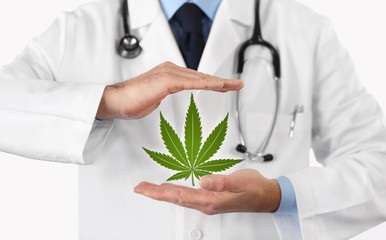 Medical marijuana is becoming more accepted by the public and medical communities as a legitimate treatment for certain conditions. Research suggests that it can be used to treat symptoms of chronic pain, nausea, loss of appetite, anxiety, depression, and more. Medical marijuana has even been used to successfully reduce seizures in epilepsy patients who have not responded well to traditional treatments. Physicians are prescribing medical cannabis products as an alternative or addition to pharmaceutical medications with fewer side effects than many prescription drugs.
The potential therapeutic benefits of marijuana are being studied around the world in clinical studies and trials with positive results so far. Patients may find relief from their ailments without having to worry about serious side effects like those associated with some prescription drugs such as opioids or benzodiazepines. The use of medical marijuana has become more accepted as a viable treatment option for a variety of conditions, and many states have legalized its use.
We understand that the process of becoming certified for medical marijuana can be intimidating. That’s why we strive to make it as easy and stress-free as possible. Our friendly staff is always on hand to answer your questions, so you don’t have to worry about going through this process alone. We provide comprehensive evaluations, guidance every step of the way, and a range of services from our knowledgeable team members who specialize in cannabis medicine.
Our full suite of services includes initial evaluations; recommendations for qualifying conditions; follow-up appointments if necessary; product selection advice; strain selection based on individual needs and much more!
Medical marijuana is becoming more accepted by the public and medical communities as a legitimate treatment for certain conditions. Research suggests that it can be used to treat symptoms of chronic pain, nausea, loss of appetite, anxiety, depression, and more. Medical marijuana has even been used to successfully reduce seizures in epilepsy patients who have not responded well to traditional treatments. Physicians are prescribing medical cannabis products as an alternative or addition to pharmaceutical medications with fewer side effects than many prescription drugs.
The potential therapeutic benefits of marijuana are being studied around the world in clinical studies and trials with positive results so far. Patients may find relief from their ailments without having to worry about serious side effects like those associated with some prescription drugs such as opioids or benzodiazepines. The use of medical marijuana has become more accepted as a viable treatment option for a variety of conditions, and many states have legalized its use.
We understand that the process of becoming certified for medical marijuana can be intimidating. That’s why we strive to make it as easy and stress-free as possible. Our friendly staff is always on hand to answer your questions, so you don’t have to worry about going through this process alone. We provide comprehensive evaluations, guidance every step of the way, and a range of services from our knowledgeable team members who specialize in cannabis medicine.
Our full suite of services includes initial evaluations; recommendations for qualifying conditions; follow-up appointments if necessary; product selection advice; strain selection based on individual needs and much more!
A recent study conducted by a research team from the University of Michigan has revealed that cannabis use is an effective treatment for patients with chronic pain. The study followed over 400 participants and concluded that those who used medical marijuana had greater relief from pain than those who didn’t use it. This finding contradicts previous beliefs that medical marijuana only provides temporary relief, as this new research suggests long-term benefits are possible. Furthermore, the study indicated that using medical marijuana was also associated with improved sleep quality and mental health in patients suffering from chronic pain.
The results of this study provide strong evidence to suggest medical marijuana use is beneficial for people living with chronic pain conditions such as fibromyalgia, arthritis, and neuropathy. Cannabis has become increasingly popular among individuals seeking alternative treatments for chronic pain, and this study provides further affirmation that Cannabis Use is an effective solution. Doctors should consider Cannabis Use as a viable option when treating patients with chronic pain, as it may provide lasting relief safely and naturally.
The study highlights the potential medical marijuana use has to be used as a helpful treatment option for those living with chronic pain conditions. With more research needed to fully understand its effects, cannabis may become a widely accepted form of therapy shortly. As this research continues to develop, doctors must offer medical marijuana use as part of their treatment plan so people can get the most out of its benefits.
Medical Marijuana To Treat Anxiety
Cannabis use has been studied as a potential treatment for anxiety. Research indicates that certain components of marijuana, such as CBD, possess the ability to reduce symptoms of anxiety and related conditions like PTSD. Some studies have also found that using small doses of cannabis could help improve sleep quality in people experiencing anxiety. While these results are promising, more research needs to be done before medical marijuana can be definitively prescribed as a form of treatment for anxiety.
Additionally, it is important to note that it is not recommended to self-medicate with medical marijuana without consulting a healthcare professional first. Cannabis has the potential to interact with other medications or cause an adverse reaction in some individuals. As such, talking to our doctors and understanding the associated risks is essential before considering cannabis use for the treatment of anxiety.
Cannabis Use To Treat Pain
Cannabis use has recently been gaining increased attention in the medical world as an effective and safe treatment for chronic pain. Studies have shown that Cannabis can be used to reduce inflammation, decrease nausea, and even alleviate symptoms associated with multiple sclerosis. Research also suggests medical marijuana may help manage neuropathic pain, which is usually caused by nerve damage or injury.
Cannabis’ ability to reduce pain without causing serious side effects makes it a viable solution for those looking for relief from their chronic pain conditions. In addition to providing physical benefits, medical marijuana can also be used to provide mental health benefits such as reduced anxiety and improved moods. Many patients report feeling less overwhelmed after using Cannabis and have experienced other improvements in their overall sense of well-being. As more studies are conducted on Cannabis and its potential medical benefits, it is becoming increasingly clear that medical marijuana may be a safe and effective solution for those dealing with chronic pain.
At All Natural MD, we recognize that Cannabis use is becoming increasingly popular and can be beneficial to those suffering from a variety of medical conditions. Our clinic provides comprehensive patient evaluations throughout the entire state of Florida to determine if Cannabis will benefit the individual in question. Call us today at 800-250-6737 or visit our website today for more information!
The United States Supreme Court has the power to change medical marijuana laws and makes medical marijuana legal in the country. However, this is a complex issue since it involves both state and federal laws. Medical marijuana is currently legal in 33 states, Washington D.C., Guam, Puerto Rico, and the U.S. Virgin Islands for varying degrees of use and access. While some states have decriminalized recreational marijuana possession, others have not yet legalized either type of usage.
The Supreme Court could potentially overrule decisions by individual states on whether or not to legalize medical marijuana; however, such an action would be highly unlikely due to current circumstances and precedents set by previous decisions involving similar issues. The court may also choose to hear arguments for and against making medical marijuana legal in the United States and could make a ruling based on those arguments.
It is important to note that while the Supreme Court may have ultimate authority over federal law, it does not have the same power when it comes to state laws. As such, any changes that are made must be done through legislation passed by both Congress and individual states.
Therefore, even if the Supreme Court were to rule in favor of making medical marijuana legal in the United States, there would still need to be supporting laws established at the state level before such a decision could be implemented nationwide. Ultimately, whether or not medical marijuana becomes legal in America depends largely upon public opinion and pressure from advocacy groups for change.
It remains to be seen whether or not this pressure will be enough to lead the Supreme Court to make a favorable ruling on medical marijuana. Only time will tell.
Medical Marijuana Laws
Medical marijuana laws have been around for decades, but a growing number of states are now legalizing it for both medical and recreational use. In 1996, California became the first state to pass legislation allowing the use of medical marijuana, and since then many other states have followed suit. Currently, 33 states and Washington D.C. allow the sale and possession of cannabis products for medical purposes.
In addition to providing relief from symptoms associated with chronic illnesses such as cancer and multiple sclerosis, research has shown that medical marijuana can also treat other conditions that don’t respond well to traditional treatments — including anxiety, depression, PTSD, seizures, and even Alzheimer’s disease. Furthermore, the compounds in cannabis may offer protection against certain types of cancer cells, as well as help to reduce inflammation in the body.
However, reputable medical marijuana laws also provide for strict regulations on who can access and use cannabis products. In most states, patients must be at least 18 years old and have a valid medical recommendation from a licensed physician. Furthermore, those looking to purchase medical marijuana must do so from an authorized dispensary or provider that is regulated by their state’s Department of Health.
Ultimately, although there are many benefits associated with medical marijuana laws, it is important to understand the potential risks involved when using cannabis products – including addiction, impaired driving, and other legal issues – before deciding whether or not this is the right course of treatment for your individual needs. It is also important to speak with a qualified medical professional to ensure that you understand all of the risks, benefits, and potential side effects associated with cannabis.
By understanding and adhering to the laws in your state, you can help ensure that medical marijuana products are used safely and responsibly – and continue to provide relief for many patients around the world.
Our team of Medical Professionals is dedicated to providing our patients with quality care while staying compliant with all Medical Marijuana Laws in Florida. We ensure complete privacy and guarantee that both our evaluations and treatments comply with state regulations. Call us at 800-250-6737 or visit our website today for more information!

